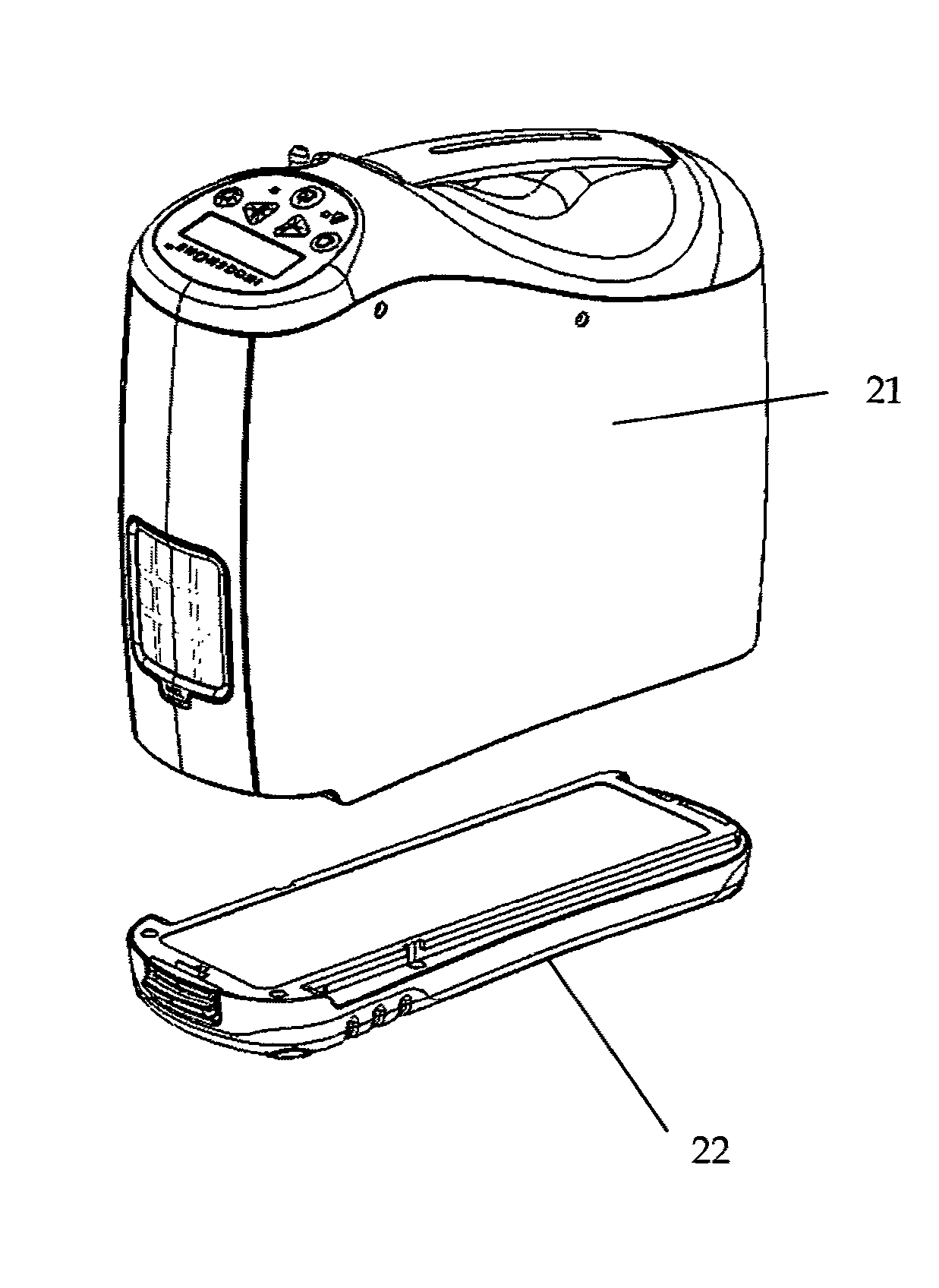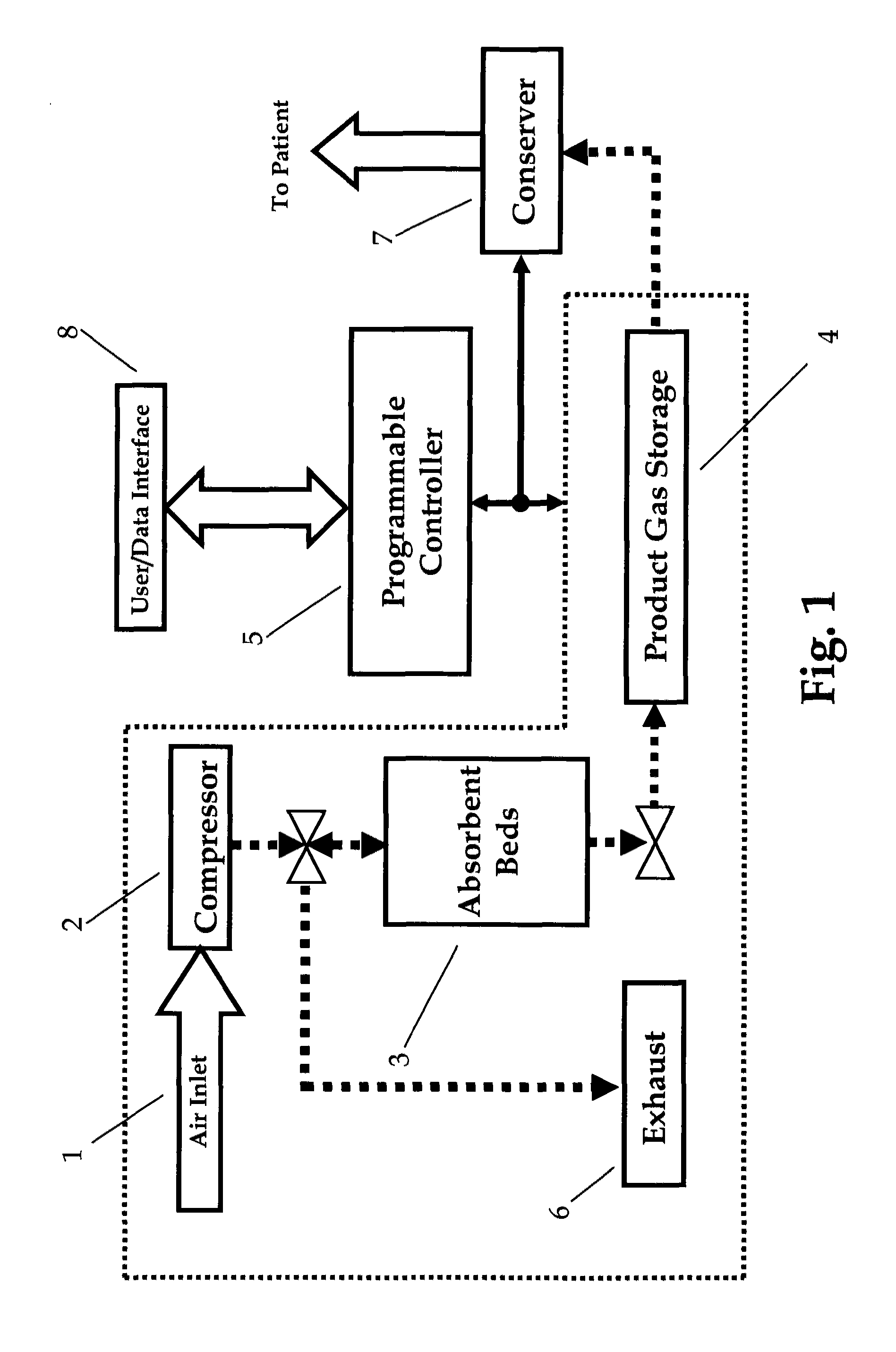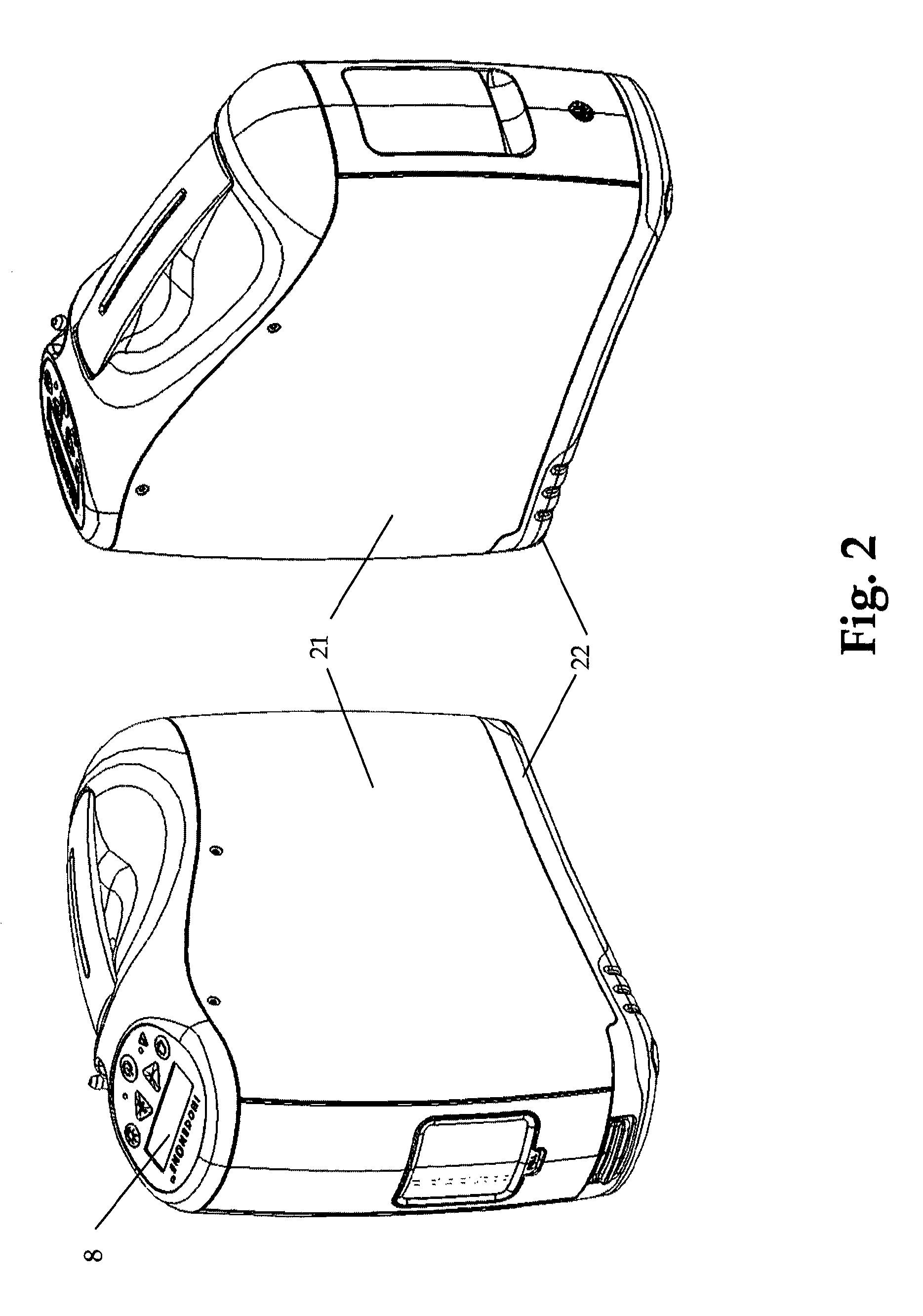Advanced portable oxygen concentrator
a portable oxygen concentrator and advanced technology, applied in the field of oxygen concentrators, can solve the problems of large device weight, large sensor weight, and large sensor weight, and achieve the effect of improving sensor tolerance and eliminating the hard mounting of sensors
- Summary
- Abstract
- Description
- Claims
- Application Information
AI Technical Summary
Benefits of technology
Problems solved by technology
Method used
Image
Examples
Embodiment Construction
[0034]Referring to FIG. 1, general features of a portable therapeutic gas concentrator are shown. Typically gas is drawn into the inlet through an inlet filter 1 into a compressor 2. Compressed air is then delivered at a rate of about 3 LPM to 30 LPM (through various filters and other devices) to a gas separation section for selectively adsorbing a component of the gas. The preferred embodiments of the invention, although applicable to a variety of gas concentrator implementations, will be described in detail for the case where the inlet gas is air, and the gas separation section is based on PSA, VA, VPSA or some combination thereof, utilizing adsorbent beds 3 which selectively adsorb nitrogen, producing oxygen rich product.
[0035]A variety of gas separation section cycle types and bed arrangements are known in the art, most of which can benefit from the embodiments of the invention. Whatever the details of the gas separation section 3, typically product gas is accumulated in a stora...
PUM
| Property | Measurement | Unit |
|---|---|---|
| time | aaaaa | aaaaa |
| pressure | aaaaa | aaaaa |
| weight | aaaaa | aaaaa |
Abstract
Description
Claims
Application Information
 Login to View More
Login to View More - R&D
- Intellectual Property
- Life Sciences
- Materials
- Tech Scout
- Unparalleled Data Quality
- Higher Quality Content
- 60% Fewer Hallucinations
Browse by: Latest US Patents, China's latest patents, Technical Efficacy Thesaurus, Application Domain, Technology Topic, Popular Technical Reports.
© 2025 PatSnap. All rights reserved.Legal|Privacy policy|Modern Slavery Act Transparency Statement|Sitemap|About US| Contact US: help@patsnap.com



